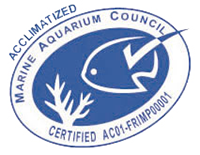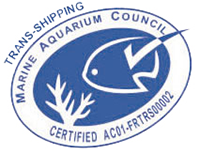In a worldwide economy, the success of a company is shown, amongst other things, by dynamic partnerships and official national and international acknowledgements. It is in this spirit that AMBLARD conducts its development.
Affiliations
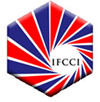
The Franco-Indonesian Chamber of Commerce and Industry

French Union of Animal Related Employment

International Air Transport Association
The AMBLARD company is IATA accredited. This accreditation is an official acknowledgement of the competence of the company’s « transport and logistics » management in terms of air freight. A specific knowledge acquired through training given by IATA and through other means.
Created in 1945, the IATA association, which groups the majority of the world’s airline companies, has the objective of favouring the development of airline transport by unifying and co-coordinating the international norms and regulations. It intervenes in the domain of security of passengers and airline freight. It works to improve and modernise services without neglecting reduction and optimisation of costs.
Created in 1945, the IATA association, which groups the majority of the world’s airline companies, has the objective of favouring the development of airline transport by unifying and co-coordinating the international norms and regulations. It intervenes in the domain of security of passengers and airline freight. It works to improve and modernise services without neglecting reduction and optimisation of costs.
Certifications

Marine Aquarium Council
The AMBLARD company is the first French acclimatisation centre and the first and only Marine Aquarium Council certified worldwide trans-shipper. It is also the only European company to have received this double international certification which concerns the quality of marine species destined for the aquatics trade as well as respect for the marine environment.
Who are the Marine Aquarium Council?
Identity : it’s a non-government organisation that regroups the various members of the aquatics trade: fishermen, exporters, importers, trans-shippers, wholesalers, shops, public organisations, scientific organisations...
Purpose : this organisation works for a safe and regulated future for marine life through ethical commerce.
Objective : normalise the aquatics distribution chain
by protecting:
- marine environment and ecosystems,
- animals, fish and tropical marine invertebrates and coral reefs,
by stopping the bad practices of certain people in the chain of distribution of the aquatics trade and their consequences:
- fishing with cyanide,
- over exploitation of collection sites,
- inappropriate maintenance conditions,
- inacceptable packaging and methods of transport,
- non respect of regulation,
- high mortality,
- fragile animals impossible to maintain in aquariums,
- irregular availability,
- badly managed supply delay.
Results: M.A.C. certified animals are:
- in better health,
- imported entirely legally respecting various regulations,
- collected with respect for sustainable exploitation of coral reefs,
- manipulated and transported with respect for best practices,
- maintained in the best conditions in aquariums so as to increase their chances of survival in captivity.
It allows protection of ecosystems and the life and health of the animals while preserving the financial interests of all the members concerned.
How is M.A.C. certification obtained?
M.A.C. certification imposes international standards inspired by ISO 9001 and ISO 14001 certifications.
Companies who wish to obtain this certification are examined by independent auditors. They must rigorously put in place a quality procedure that eventually optimises the satisfaction of clients.
M.A.C. certified companies obtain a label of conformity identified by a logo.
This logo is proof that the company respects international norms that protect animals and the environment for the aquatics trade.
A norm to respect
To obtain M.A.C. certification, shops, exporters, importers, wholesalers and trans-shippers concerned, must respond to the demands of the HHT norm "Handling, Husbandry and Transport".
This norm involves manipulation, maintenance and transport of marine organisms in the following domains:
- management of orders and mastery of documentation,
- identification and traceability of marine organisms,
- respect of regulation,
- optimum health of marine organisms and maintenance conditions,
- mastery of recordings and information,
- follow-up of client claims,
- management of transport and acclimatisation conditions,
- management of "M.A.C. Certified Organism" status,
- appointment and training of personnel.
The principal idea of this standard is the optimum health that designates the conditions of good health of the animals according to the M.A.C. norms. The optimum health has as an objective the preservation of the lifespan of marine organisms and to achieve a death rate of less than 1%.
M.A.C. certification is a pledge of quality for marine species offered by the AMBLARD company as well as a guarantee of an approach that respects the environment: two attributes that make the difference and confirm the commitment of the company to responsible aquatics trading.
To find out more on the Marine Aquarium Council : www.aquariumcouncil.org
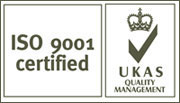
ISO 9001
The acclimatisation centre in Villepinte and the trans-shipping activity in Mazamet are ISO 9001 certified for quality management. This acknowledgement assures clients of the AMBLARD company of an optimum response in terms of quality standards and professionalism.
The ISO 9001:2008 norm defines a variety of normalised requirements applied to quality management, some relating to the activity nature and the size of the organisation and others relating to the public or private sector to which it belongs.
It establishes a proven framework to adopt a systematic approach to management of the company’s processes so as to ensure an optimum response to clients’ needs.
The norm requires that the company audits its quality system based on ISO 9001:2008 so as to verify the efficiency of procedures.
The ISO 9001:2008 norm defines a variety of normalised requirements applied to quality management, some relating to the activity nature and the size of the organisation and others relating to the public or private sector to which it belongs.
It establishes a proven framework to adopt a systematic approach to management of the company’s processes so as to ensure an optimum response to clients’ needs.
The norm requires that the company audits its quality system based on ISO 9001:2008 so as to verify the efficiency of procedures.
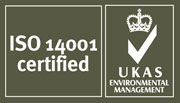
ISO 14001
The AMBLARD company is certified ISO 14001 for all of its acclimatisation and trans-shipping activities. This certification is based on the demands of sustainable development and on a dynamic continued environmental performance.
The ISO 14001:2004 norm prescribes the requirements relating to an environmental management system (S.M.E.) allowing the company to formulate a policy and objectives taking into account the legal requirements and the information relative to the significant environmental impacts.
It rests on the principal of continuous improvement of environmental performance by the mastery of impacts linked to the company’s activities. This means a double commitment of continuous progress and respect of regulatory conformity.
It allows a well structured approach to the steps required to put in place a system of environmental management, while assuring traceability and bringing the associated credibility of certification by an accredited exterior organisation.
It implicates the company in the commitment to reducing pollution and continuing improvement.
The ISO 14001:2004 norm prescribes the requirements relating to an environmental management system (S.M.E.) allowing the company to formulate a policy and objectives taking into account the legal requirements and the information relative to the significant environmental impacts.
It rests on the principal of continuous improvement of environmental performance by the mastery of impacts linked to the company’s activities. This means a double commitment of continuous progress and respect of regulatory conformity.
It allows a well structured approach to the steps required to put in place a system of environmental management, while assuring traceability and bringing the associated credibility of certification by an accredited exterior organisation.
It implicates the company in the commitment to reducing pollution and continuing improvement.
« Banque de France » rating
The AMBLARD company achieved the best « Banque de France » score that a company can have in terms of credit. This signifies that the company is completely capable of honouring all its financial engagements: a much appreciated security for partners, clients and suppliers.
Banque de France is an impartial organisation with the traditional mission of analysing companies, formulating an opinion on their situation and ensuring that certain financial regulations are respected. « Banque de France » rating is therefore a reliable evaluation of the economic and financial capacity of companies for the following 3 years.
THE AMBLARD COMPANY ACHIEVED THE BANQUE DE FRANCE SCORE OF G3++ IN 2010
Banque de France is registered on the list of External Credit Evaluation Organisations (OEEC). This is recognition that it respects the international criteria of evaluation of credit risk: objectivity and independence in the attribution of ratings, regular examination of them, transparence and publication of the method largely used by the banking profession.
« Banque de France » rating:
Banque de France is an impartial organisation with the traditional mission of analysing companies, formulating an opinion on their situation and ensuring that certain financial regulations are respected. « Banque de France » rating is therefore a reliable evaluation of the economic and financial capacity of companies for the following 3 years.
THE AMBLARD COMPANY ACHIEVED THE BANQUE DE FRANCE SCORE OF G3++ IN 2010
- Business rating : G (Turnover between 1,5 et 7,5 M€),
- Credit rating: 3++ which is the best score a company can achieve.
Information:
Banque de France is registered on the list of External Credit Evaluation Organisations (OEEC). This is recognition that it respects the international criteria of evaluation of credit risk: objectivity and independence in the attribution of ratings, regular examination of them, transparence and publication of the method largely used by the banking profession.











